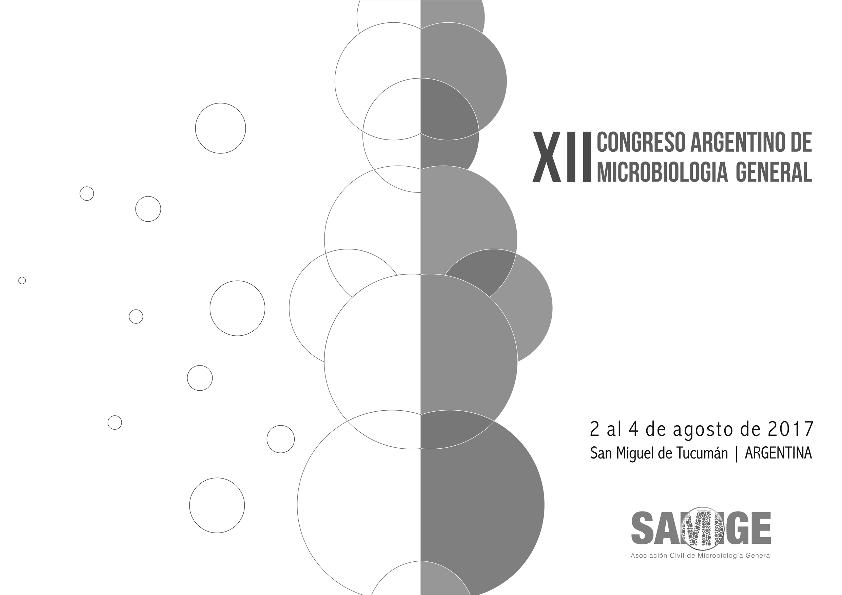Mostrar el registro sencillo del ítem
dc.contributor.author
Pisa, José Horacio

dc.contributor.author
Hero, Johan Sebastian

dc.contributor.author
Romero Brunetto, Héctor
dc.contributor.author
Perotti, Nora Ines

dc.contributor.author
Martinez, Maria Alejandra

dc.date.available
2023-02-22T16:02:42Z
dc.date.issued
2017
dc.identifier.citation
Bioinformatic characterization of genes encoding xylan degrading enzymes in the paenibacillus sp. Ar247 and cohnella sp. Ar92 genomes; XII Congreso Argentino de Micorbiología General; San Miguel de Tucumán; Argentina; 2017; 1-2
dc.identifier.uri
http://hdl.handle.net/11336/188596
dc.description.abstract
The increasing interest to renewable lignocellulosic materials for the production of environment-friendly chemicals and biofuels boosts the search of new carbohydrate-active enzymes (Cazymes) and microbial strains. In this study, we analyze the draft genomes of two highly hemicellulolytic bacteria isolated from industrial liquor samples from the local paper industry to unravel their xylan degrading pathways. Gene annotations were carried out using Rapid Annotations Subsystems Technology (RAST) 2.0. BlastP was employed to find orthologous genes between the translated proteins from the predicted open reading frames of both genomes and a local database consisting on the translated proteins of the141 genomes of the Paenibacillaceae family members available on NCBI database up to date. Only bidirectional matches were considered. To identify potential Cazymes, translated proteins were submitted to the dbCAN database. The genome sizes were 7.1 Mb (Paenibacillus sp. AR247) and 6.0 Mb (Cohnella sp. AR92), which contained 7159 and 5439 coding sequences, respectively. 51 orthologous genes were found by the BlastP analysis, most of which corresponded to ribosomal genes. The phylogenetic tree built on the basis of those concatenated gene sequences showed Cohnella genus (including the strain AR92) as a monophyletic group within the paraphyletic group of Paenibacillus spp. The strain AR247 was found to be related to Paenibacillus sp. P1XP2, Paenibacillus pini JCM 16418 and Paenibacillus sp. IHB_B 10380, forming a well support clade.Both genomes displayed multiple genes encoding a broad variety of extracellular and cell-wall (SLH domians) of endo-β-1,4-xylanases (GHs 10; 11; 30 and 43), some of which also showed CBM domains (mainly CBM9; 22; 6). Sequences encoding potential intracellular exo-oligoxylanase (GH8) and β-xylosidases (GHs 39; 43; 51 and 52) were identified, which might be responsible for processing the products released by the extracellular enzymes. Finally, the overall assimilation could be performed by intracellular debranching enzymes α-glucuronidase (GH67), α-arabinofuranosidase (GHs 43 and 51) and acetylxylanesterase.The redundancy of GH genes observed in the analyzed genomes, the predicted enzyme architectures and their cellular localization are in agreement with other well descripted Paenibacillus species. Therefore, the strains AR247 and AR92 might display similar strategies for the degradation of xylan.
dc.format
application/pdf
dc.language.iso
eng
dc.publisher
Asociación Argentina de Microbiología

dc.rights
info:eu-repo/semantics/openAccess
dc.rights.uri
https://creativecommons.org/licenses/by-nc-sa/2.5/ar/
dc.subject
BIOINFORMATICA
dc.subject
PAENIBACILLUS
dc.subject
COHNELLA
dc.subject.classification
Biotecnología Industrial

dc.subject.classification
Biotecnología Industrial

dc.subject.classification
INGENIERÍAS Y TECNOLOGÍAS

dc.title
Bioinformatic characterization of genes encoding xylan degrading enzymes in the paenibacillus sp. Ar247 and cohnella sp. Ar92 genomes
dc.type
info:eu-repo/semantics/publishedVersion
dc.type
info:eu-repo/semantics/conferenceObject
dc.type
info:ar-repo/semantics/documento de conferencia
dc.date.updated
2023-02-10T17:55:29Z
dc.journal.pagination
1-2
dc.journal.pais
Argentina

dc.journal.ciudad
San Miguel de Tucumán
dc.description.fil
Fil: Pisa, José Horacio. Consejo Nacional de Investigaciones Científicas y Técnicas. Centro Científico Tecnológico Conicet - Tucumán. Planta Piloto de Procesos Industriales Microbiológicos; Argentina
dc.description.fil
Fil: Hero, Johan Sebastian. Consejo Nacional de Investigaciones Científicas y Técnicas. Centro Científico Tecnológico Conicet - Tucumán. Planta Piloto de Procesos Industriales Microbiológicos; Argentina
dc.description.fil
Fil: Romero Brunetto, Héctor. Universidad de la República; Uruguay
dc.description.fil
Fil: Perotti, Nora Ines. Universidad Nacional de Tucumán. Facultad de Ciencias Exactas y Tecnología; Argentina. Consejo Nacional de Investigaciones Científicas y Técnicas. Centro Científico Tecnológico Conicet - Tucumán. Planta Piloto de Procesos Industriales Microbiológicos; Argentina
dc.description.fil
Fil: Martinez, Maria Alejandra. Consejo Nacional de Investigaciones Científicas y Técnicas. Centro Científico Tecnológico Conicet - Tucumán. Planta Piloto de Procesos Industriales Microbiológicos; Argentina
dc.relation.alternativeid
info:eu-repo/semantics/altIdentifier/url/https://samige.org.ar/wp-content/uploads/2022/10/Libro-SAMIGE-2017.pdf
dc.conicet.rol
Autor

dc.conicet.rol
Autor

dc.conicet.rol
Autor

dc.conicet.rol
Autor

dc.conicet.rol
Autor

dc.coverage
Nacional
dc.type.subtype
Congreso
dc.description.nombreEvento
XII Congreso Argentino de Micorbiología General
dc.date.evento
2017-08-02
dc.description.ciudadEvento
San Miguel de Tucumán
dc.description.paisEvento
Argentina

dc.type.publicacion
Book
dc.description.institucionOrganizadora
Asociación Argentina de Microbiología
dc.source.libro
XII Congreso Argentino de Micorbiología General
dc.date.eventoHasta
2017-08-04
dc.type
Congreso
Archivos asociados
